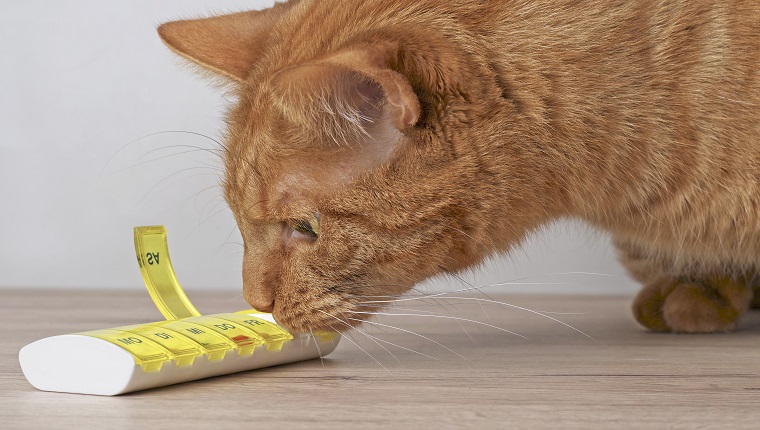Zeniquin for cats is an antibiotic medication that’s usually prescribed to help with bacterial infections. It’s actually a brand name for the drug marbofloxacin.
The drug works by stopping a bacteria’s DNA from replicating. It comes in tablet form, with each tablet coated with film.
Zeniquin is an FDA-approved medicine and requires a veterinarian‘s prescription to purchase. You can easily order it for your cat online from Chewy’s pharmacy with your vet’s prescription. Closely follow your vet’s instructions for the correct and safe dosage and frequency for your cat.
Here’s what you should know about the uses, dosage, and side effects of Zeniquin for cats.
Uses Of Zeniquin For Cats
Veterinarians usually prescribe Zeniquin for cats to treat bacterial infections. It’s an antibiotic vets often use for treatment of soft-tissue or skin infections in cats.
Vets sometimes also administer the drug for some urinary tract infections. The medicine works by stopping the bacteria’s DNA from replicating.
Dosage Of Zeniquin For Cats

The following is a guideline for typical use of the drug in cats and must not replace your veterinarian’s advice for your individual pet.
Vets generally prescribe Zeniquin for cats at a dosage of 1.25 milligrams for every pound the cat weighs. It is normally administered once a day.
Depending on the issue that your vet is treating, the full course of the prescription could last as long as a month.
If your vet has prescribed this drug, it’s important to always follow the dosage and administration instructions exactly. This includes the length of time you should give the medicine to your cat.
Side Effects Of Zeniquin For Cats
The main side effect that might occur when giving a cat Zeniquin is an allergic reaction. This could include your cat’s face or lips swelling up, the appearance of hives, or breathing problems.
If any of these symptoms start, contact your veterinarian immediately.
In the case of an overdose of Zeniquin, contact an emergency veterinarian straight away.
Has your cat ever taken Zeniquin? Did it help your cat get over a bacterial infection? Let us know in the comments section below!





